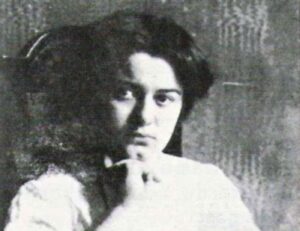All lives bear a message, whether those of the famous few or those of the unknown many. Among the latter was the life of Cerian Williams, a child anonymous to virtually everyone in the city of her birth, Oxford, England.
Cerian’s mother, Sarah, has written an account of her life and death: Perfectly Human: Nine Months with Cerian. Its unforgettable story reflects the premise that the worth of every human being exists prior to and irrespective of anything else about the person. Human worth is not found in our achievements; it is not lost in our failures; it is not rendered suboptimal by declarations of “normality.”
Sarah and her family were thrilled with the news that another Williams was on the way. But during a routine ultrasound, Sarah’s joy turned to horror:
The technician put her hand on my arm and said the words that every expectant mother hopes she will never hear: “I am so sorry. There is something wrong with the baby.”
Start your day with Public Discourse
Sign up and get our daily essays sent straight to your inbox.
In several minutes, a diagnosis was pronounced with terrifying clarity: “thanatophoric dysphasia, a lethal skeletal deformity that will certainly result in death shortly after birth.” Indeed, Cerian did die soon after delivery.
But the death of Cerian is not the controlling theme of this book. Instead, it focuses on the social impact of Sarah’s carrying Cerian to term. In this the unborn infant, despite her diagnosis, had her life message—but one more often spoken against. A medic at the university hospital chided Sarah like an outraged preacher:
To fail to abort in the case of proven fetal abnormality is morally wrong, because in doing so one is deliberately and willfully choosing to bring unavoidable suffering into the world. It is an ethical imperative to abort in the case of suboptimal life.
Sarah tossed his indictment about in her mind over and over. A professor of history at Oxford, she processed it in dialogue with thinkers as divergent as John Stuart Mill and Jürgen Moltmann. The latter had special impact, for he would have identified the medic as just one more spokesperson for a hegemonic narrative written by the “capable” of our day. Williams paraphrases Moltmann:
The ideal of health set up by the capable condemns a certain group of people to be called handicapped. Our society arbitrarily defines health as the capacity for work and a capacity for enjoyment, but true health . . . is the strength to live, the strength to suffer, the strength to die.
The Williamses chose to resist. And because of that, Perfectly Human inspires. Cerian Williams was brought to term not because she was deemed “normal” but because she was already human. Simply human. Perfectly human. Cerian stands contra mundum, against the world, the world of the capable. She affirms the intrinsic value of the unborn, handicapped, dying, and all who do not fit the standards of a culture that insists on strength, not weakness, for admission to its elitist country club. Perfectly Human builds one’s courage to believe and live afresh that conviction.












